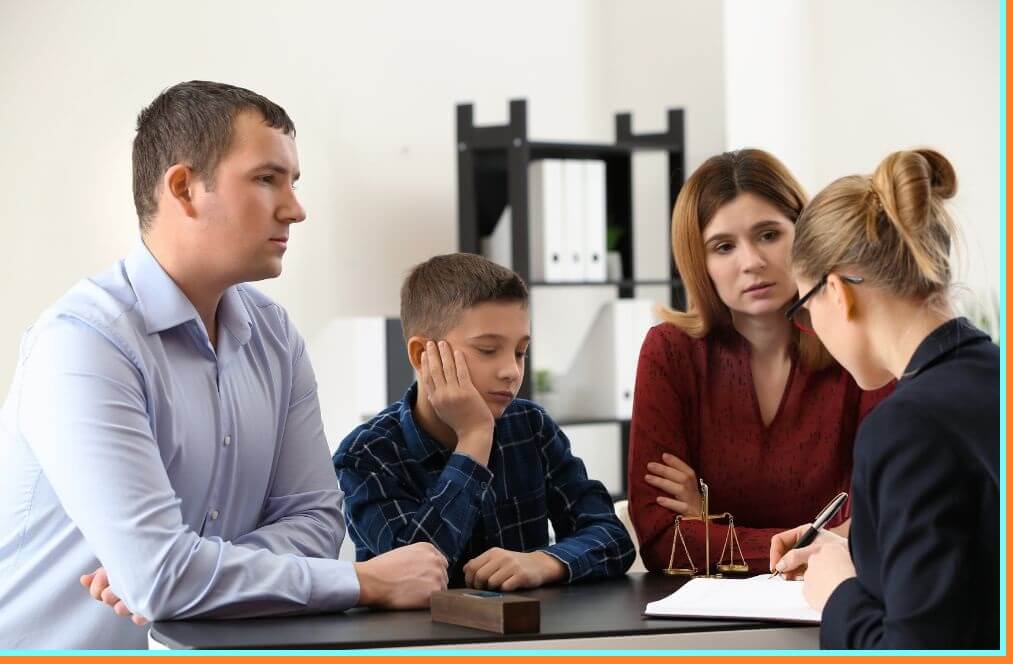In today’s time, the relationship between a husband and wife reaches the stage of divorce and separation due to mutual discord and disagreement, after which a family gets entangled in legal complications.
But it is important to understand the role of “custodial parents” in this. Many of you may not have any idea about “What is a custodial parent“. And what are the responsibilities of the custodial parent? So today we are going to tell you about all this.
WHAT IS A CUSTODIAL PARENT?
A custodial parent plays a pivotal role in a child’s life, shaping their upbringing and providing essential care. Let’s delve into what it means to be a custodial parent and the responsibilities of this vital role.
Defining Custodial Parent

A custodial parent is the primary caregiver and legal guardian of a child. This designation typically arises from divorce, separation, or other family circumstances. When parents part ways, the court often designates one parent as the custodial parent, granting them physical custody of the child.
Key Responsibilities
- Physical Custody: The custodial parent has the child living with them most of the time. They provide day-to-day care, including meals, shelter, and emotional support.
- Legal Custody: In addition to physical custody, the custodial parent may also have legal custody. Legal custody involves decision-making authority regarding the child’s education, healthcare, religion, and other important matters.
- Financial Support: Custodial parents are responsible for meeting the child’s financial needs. This includes expenses related to food, clothing, education, extracurricular activities, and medical care.
- Emotional Well-Being: Custodial parents nurture the child’s emotional health, offering love, stability, and guidance. They create a safe environment where the child feels secure.
- Co-Parenting: Effective co-parenting with the non-custodial parent is crucial. Communication, cooperation, and flexibility are essential for the child’s well-being.
legal custody vs. physical custody
Legal Custody:
- Definition: Legal custody refers to the authority to make significant decisions about a child’s upbringing, welfare, and future. These decisions encompass various aspects of the child’s life, such as education, healthcare, religion, and extracurricular activities.
- Key Points:
- Shared Decision-Making: In cases of joint legal custody, both parents have equal rights and responsibilities. They collaborate to make important choices for the child.
- Sole Legal Custody: When one parent has sole legal custody, they have exclusive decision-making authority. The other parent may still have visitation rights but does not participate in major decisions.
- Best Interests of the Child: Courts prioritize the child’s best interests when determining legal custody arrangements.
- Communication: Effective communication between parents is crucial for successful joint legal custody.
Physical Custody:
- Definition: Physical custody pertains to where the child resides on a day-to-day basis. It involves the actual physical care and supervision of the child.
- Key Points:
- Primary Physical Custody: When one parent has primary physical custody, the child lives with them most of the time. The other parent typically has visitation rights.
- Joint Physical Custody: In joint physical custody arrangements, the child spends significant time with both parents. The schedule can vary (e.g., alternating weeks, weekends, or holidays).
- Parenting Plan: Courts often require a detailed parenting plan that outlines the child’s living arrangements, visitation schedule, and other relevant factors.
- Flexibility: Flexibility and cooperation are essential for successful joint physical custody.
Overlapping Concepts:
- Combinations: Legal and physical custody can be combined in various ways:
- Joint Legal and Joint Physical Custody: Both parents share decision-making authority and physical care.
- Sole Legal and Joint Physical Custody: One parent makes major decisions, but the child spends substantial time with both parents.
- Joint Legal and Sole Physical Custody: Both parents collaborate on decisions, but the child primarily resides with one parent.
- Visitation: Even if one parent has sole physical custody, the other parent usually has visitation rights to maintain a meaningful relationship with the child.
Remember that family court decisions regarding custody are highly individualized and consider the unique circumstances of each family. It’s essential to seek legal advice and understand your rights and responsibilities during custody proceedings.
Read More – Divorce Mediation
custodial parent vs legal guardian
the distinction between a custodial parent and a legal guardian. These terms are essential in family law and have distinct implications for the care and well-being of a child.
Custodial Parent:
- Definition: A custodial parent is typically one of the biological parents who has primary physical custody of the child.
- Key Points:
- Parental Care: The custodial parent is responsible for the day-to-day care, upbringing, and residence of the child.
- Decision-Making: Custodial parents make decisions regarding the child’s education, healthcare, and other aspects of their life.
- Legal Rights: Custodial parents retain legal rights over the child, including the authority to make significant choices.
- Common Scenario: Custodial parents are often involved in divorce or separation cases where the child primarily resides with one parent.
Legal Guardian:
- Definition: A legal guardian is an individual (not necessarily a biological parent) appointed by the court to care for a minor.
- Key Points:
- Non-Parental Role: Legal guardianship can be granted to someone other than the child’s biological parent.
- Responsibilities: Guardians have the right and duty to act in the child’s best interests.
- Parental Absence or Unfitness: Guardianship may arise when a parent is absent, unfit, or unable to fulfill their parental responsibilities.
- Decision-Making: While guardians have decision-making authority, it may not be as extensive as that of custodial parents.
- Parental Rights: In some cases, biological parents may retain their parental rights even if someone else is appointed as the guardian.
Overlapping Considerations:
- Combined Roles: Sometimes, a legal guardian may also be the custodial parent.
- In such situations, the guardian fulfills both roles, providing care and making decisions for the child.
- Parental Custody and Guardianship: A child can be under the guardianship of an individual while remaining in the custody of their parents to some degree.
Remember that family court decisions consider the child’s best interests, and legal advice is crucial during custody and guardianship proceedings.
Conclusion
Finally, custodial parents are those who take care of their children after separation or divorce. They play an important role in the lives of their children, we hope you have got complete idea about what is a custodial parent. You must be aware of all these aspects before taking custody of children.



